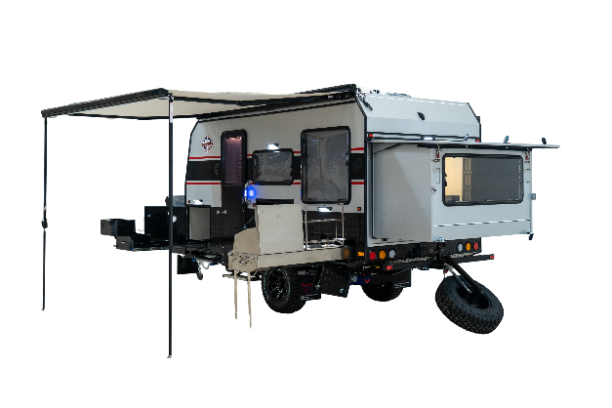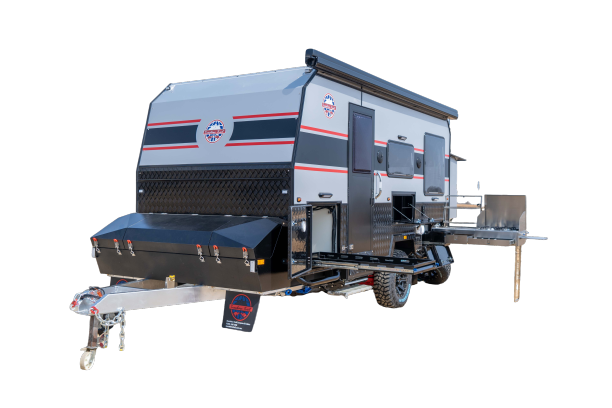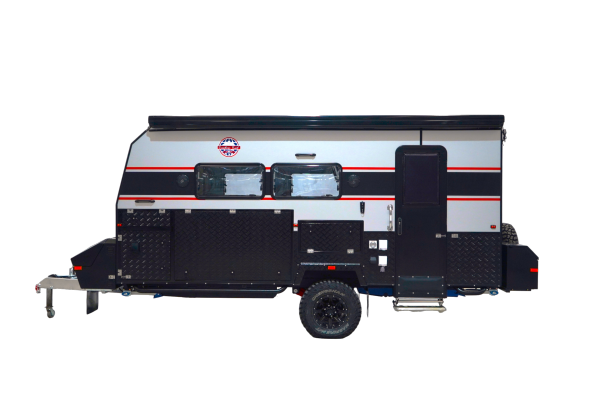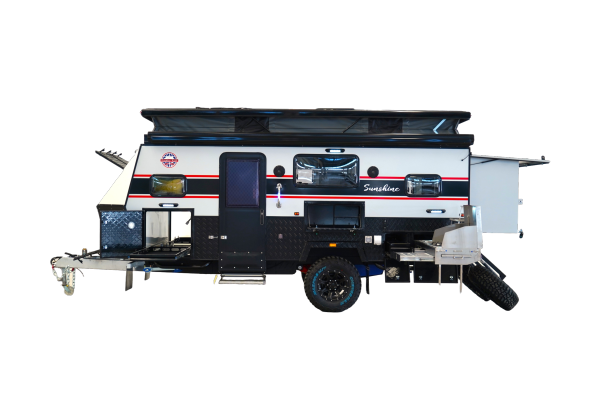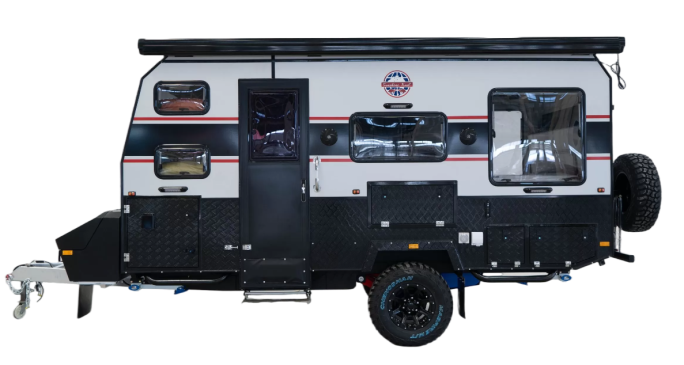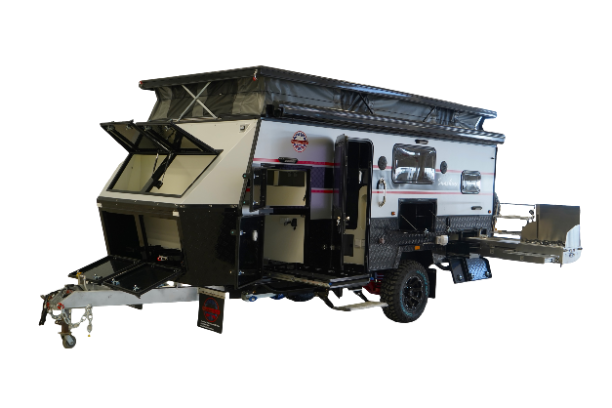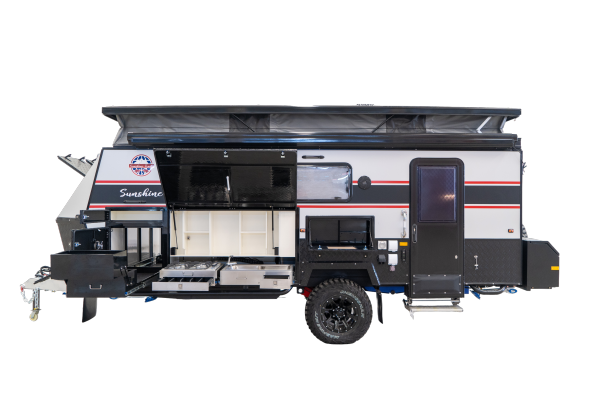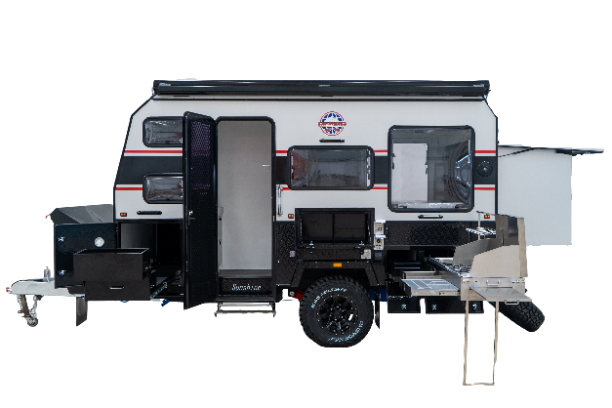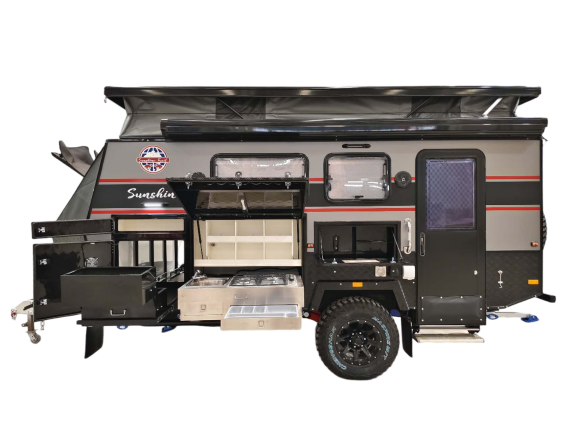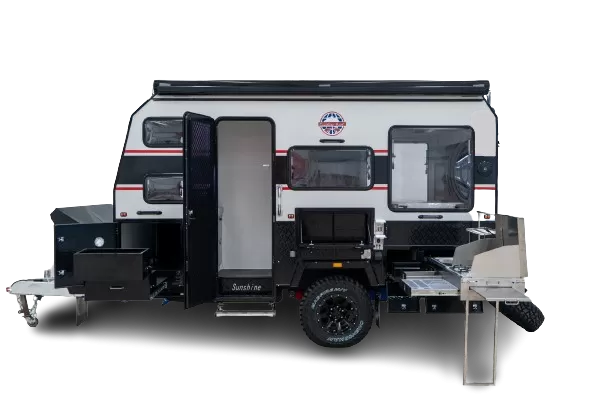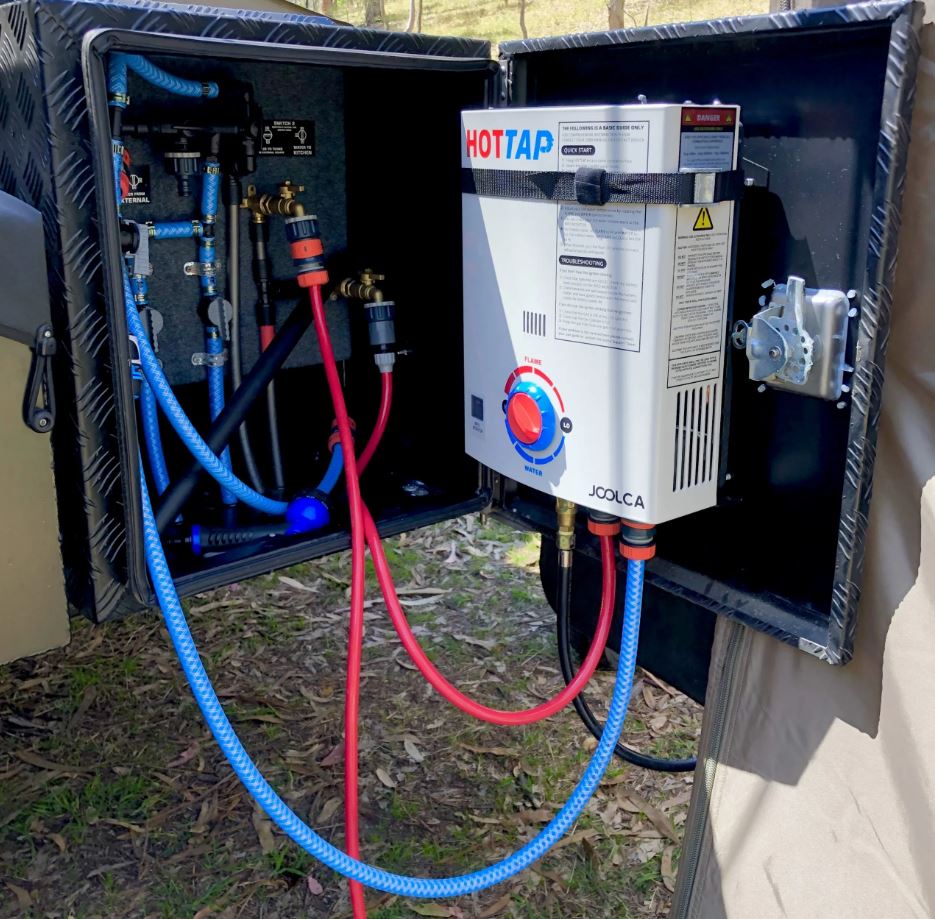
If you’re considering upgrading your caravan’s hot water system, it’s essential to understand the available options, their features, and their advantages and disadvantages.
This guide aims to help you answer the question: “Which caravan hot water system is best?” We’ll explore the five common types of best hot water systems for caravans, providing an overview of each and highlighting their key characteristics.
Importance of Best Hot Water Systems in Caravans
When it comes to caravanning, having a reliable caravan hot water system is essential for a comfortable and convenient experience.
Whether you’re on a weekend getaway or an extended road trip, access to hot water allows you to enjoy warm showers, wash dishes easily, and meet various other personal and domestic needs.
Purpose of the Comparison
The purpose of this comparison is to provide an in-depth analysis of different types of caravan hot water systems available in the market.
We will be examining each caravan water heater’s features, performance, pros, and cons. This comparison aims to assist caravan owners in making an informed decision when choosing the best hot water system for their specific needs.
Types of Hot Water Systems for Caravans
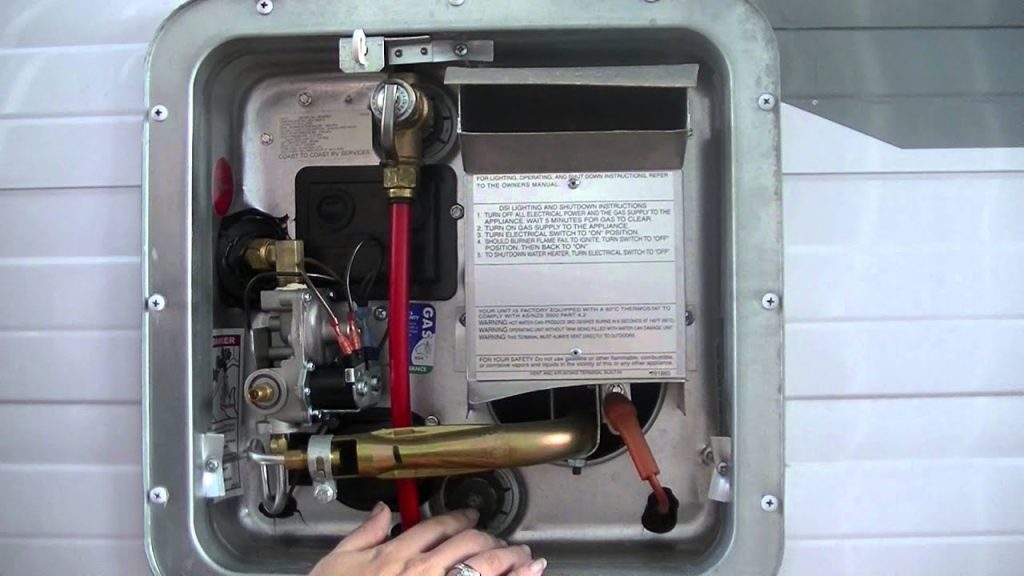
There are five main types of caravan hot water systems, distinguished by their power sources: gas, electric, gas/electric combos, diesel, and portable hot water systems.
Understanding these caravan hot water systems options is crucial before making a decision. Let’s take a closer look at each type of caravan water heater:
Type 1: Gas
Ideal for off-road adventurers and remote camping, caravan gas heaters hot water systems run on LPG or propane gas. They offer the flexibility to have a shower or wash dishes anywhere.
Caravan gas heaters systems can be tankless or use gas intermittently to maintain heated water in a storage tank. While cost-effective, they require regular gas level checks and installation by a licensed gas hot water heater fitter.
The upfront cost of gas heaters for caravans is around $1,000, and they operate quietly and independently of the caravan’s engine.
Type 2: Electric
Best Electric hot water systems require a power source, limiting their usage to campsites or when an alternative power supply, such as a battery or solar panels, is available. These systems heat water directly from the tap, offering instant hot water and higher water efficiency. They cost approximately $500, making them one of the more affordable options. With some DIY skills, they can be installed without professional assistance.
Type 3: Gas/Electric Combo
Combining the benefits of caravan gas heaters systems and the best electric hot water system. These heaters allow you to use either gas or electricity based on your location. They are popular for their flexibility, enabling hot water heating in remote areas using gas and electricity at powered campsites. A licensed fitter of gas hot water heater must install them, and their cost is around $850.
Type 4: Diesel
The diesel water heater utilizes the caravan’s diesel tank for heating water. They are highly efficient, produce clean and dry heat, and don’t cause condensation. With proper fuel monitoring, these diesel water heater systems ensure a continuous power source.
Installation of a diesel water heater is flexible, and the exhaust runs through the vehicle’s floor. However, they tend to be more expensive and generate noise during operation, with a cost of approximately $1,500.
Type 5: Portable
Perfect for caravans with limited space for a shower, portable hot water heaters are stand-alone 12V hot water system units that can be hung outside the caravan. They require connections to a gas supply, a 12V hot water system electricity supply, and a water source.
Installation is straightforward, and they are appealing due to zero installation costs. Portable hot water systems generally cost around $250.
| Hot Water System | Power Source | Installation | Cost | Instant Hot Water | Quiet |
| Gas | LPG/Propane Gas | Licensed fitter | $1,000 | ❌ | ✔ |
| Electric | Electricity | DIY possible | $500 | ✔ | ✔ |
| Gas/Electric Combo | Gas & Electric | Licensed fitter | $850 | ✔ | ✔ |
| Diesel | Caravan Diesel | Flexible | $1,500 | ❌ | ❌ |
| Portable | Gas & 12V Power | DIY possible | $250 | ✔ | ✔ |
Key Performance Factors To Consider
In evaluating the various hot water systems such as caravan gas hot water system, several key factors should be taken into consideration.
These include the heating capacity, efficiency, water flow rate, availability of energy sources, installation requirements, maintenance needs, and cost considerations.
By examining these caravan water heater factors, we can determine which hot water system offers the best combination of performance and suitability for your caravan.
Choosing the Best Caravan Hot Water System
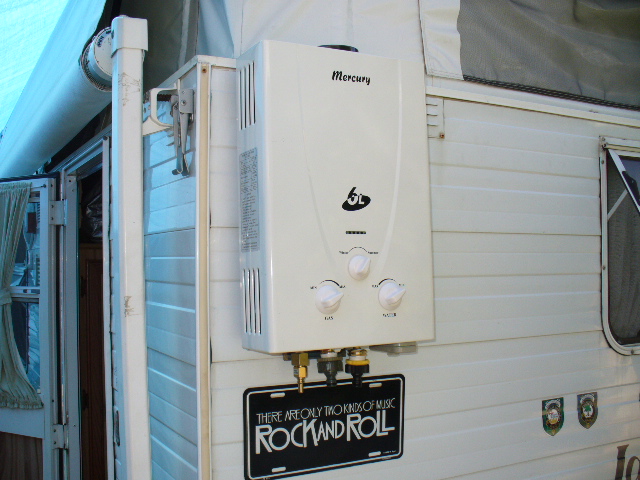
Determining the best hot water system for your caravan depends on several factors:
1. Heating capacity
The heating capacity refers to the amount of water the caravan water heater system can heat within a specific time frame. It is important to consider the size of your caravan and the number of occupants when assessing the heating capacity of the best hot water system.
A larger capacity camping hot water systems may be required for larger caravans or if you have multiple people using hot water simultaneously.
2. Efficiency
Efficiency measures how effectively the best hot water system converts its energy source into heated water. Higher efficiency systems tend to consume less energy or fuel, resulting in lower running costs and reduced environmental impact. Evaluating the efficiency of a hot water system can help you make an economical and eco-friendly choice.
3. Water Flow Rate
The water flow rate refers to the speed at which hot water is delivered by the system. A higher flow rate ensures a consistent supply of hot water, especially when multiple outlets are in use simultaneously.
It’s crucial to consider the flow rate to ensure the system can meet your caravan’s hot water demands adequately. Consider the water flow rate for each system, particularly if you prefer higher-pressure showers. Compare the rates among the different models you are considering.
4. Location
Consider your budget and where you plan to take your caravan. If you’re off-road without access to a power source like a battery or solar panels, caravan gas heaters or diesel water heater are suitable camping hot water systems options.
However, these systems can be costly to purchase and install. Best electric hot water system and portable hot water systems are more affordable and easier to install but require a reliable power source.
5. Energy Source Availability
Different camping hot water systems rely on various energy sources such as gas, electricity, or portable. Assessing the availability of these energy sources in your caravan’s intended locations is crucial.
For example, if you frequently camp in areas without electricity hookups, caravan gas heaters, portable caravan gas hot water system or solar system may be more suitable.
6. Installation & Space Requirements
The installation requirements can vary between camping hot water systems. Some caravan water heaters may require professional installation, while others offer a more straightforward DIY setup.
Understanding the installation requirements of a caravan water heater can help you determine if you have the necessary skills and resources to install the system yourself or if professional assistance is needed.
Evaluate the installation requirements and available space in your caravan. Ensure that the chosen best hot water system fits your layout without significant modifications. Consider the physical size, venting requirements, and necessary connections or piping.
7. Maintenance Needs
Each camping hot water systems has its maintenance requirements, which can include tasks like descaling, filter cleaning, or periodic servicing.
Considering the maintenance needs is important to ensure the system remains in optimal condition and to avoid any unexpected issues or breakdowns during your travels.
8. Budget & Cost
Cost is a significant factor when choosing a camping hot water systems. It includes both the initial purchase cost and the ongoing operational expenses. While certain systems may have a higher upfront cost.
They might offer better energy efficiency or lower maintenance requirements, resulting in long-term savings. Evaluating the overall cost, including installation, and running expenses, can help you make a budget-conscious decision about choosing the best hot water systems.
9. Instant Hot Water & Noise
For instant hot water without waiting for it to warm up, caravan electric hot water system and portable hot water systems of camping hot water systems are preferable.
Gas heaters for caravans and gas/electric combo systems may provide instant hot water depending on the model. Electric and caravan gas heaters units operate quietly, while diesel water heater can produce noise during operation.
Make Every Drop Count: Pick the Best Hot Water System for Your Caravan
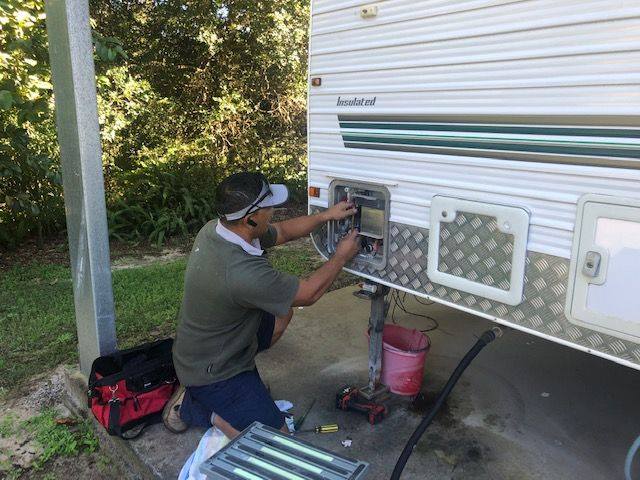
Choosing the best hot water systems involves considering your budget, desired destinations, features, and installation requirements. Gas, electric, gas/electric combos, diesel water heater, and portable hot water systems all offer different benefits and drawbacks.
By assessing your specific needs and preferences, you can select the most suitable and best hot water system Australia for your caravan.
FAQs
1. How long does a caravan hot water system last?
You can expect the best electric hot water system to last on average between 10 and 15 years.
2. How do I clean my caravan hot water system?
Water heaters need to be regularly cleaned and flushed out.
- Mix equal parts water and white vinegar
- Add to the tank
- Heat to maximum temperature before cooling down
- Empty and rinse with clean water
3. Why is the hot water pressure low in my RV?
The most common problem is a dirty and clogged water filter. You should be changing your water heater filter every six months.
4. Why am I running out of hot water so fast in my RV?
There are several reasons for not having enough hot water or for running out of hot water too quickly. The reasons could be
- Malfunctioning thermostat,
- Broken or damaged dip tube (cold water mixed with hot water at the top of the water heater)
The water temperature set too low

